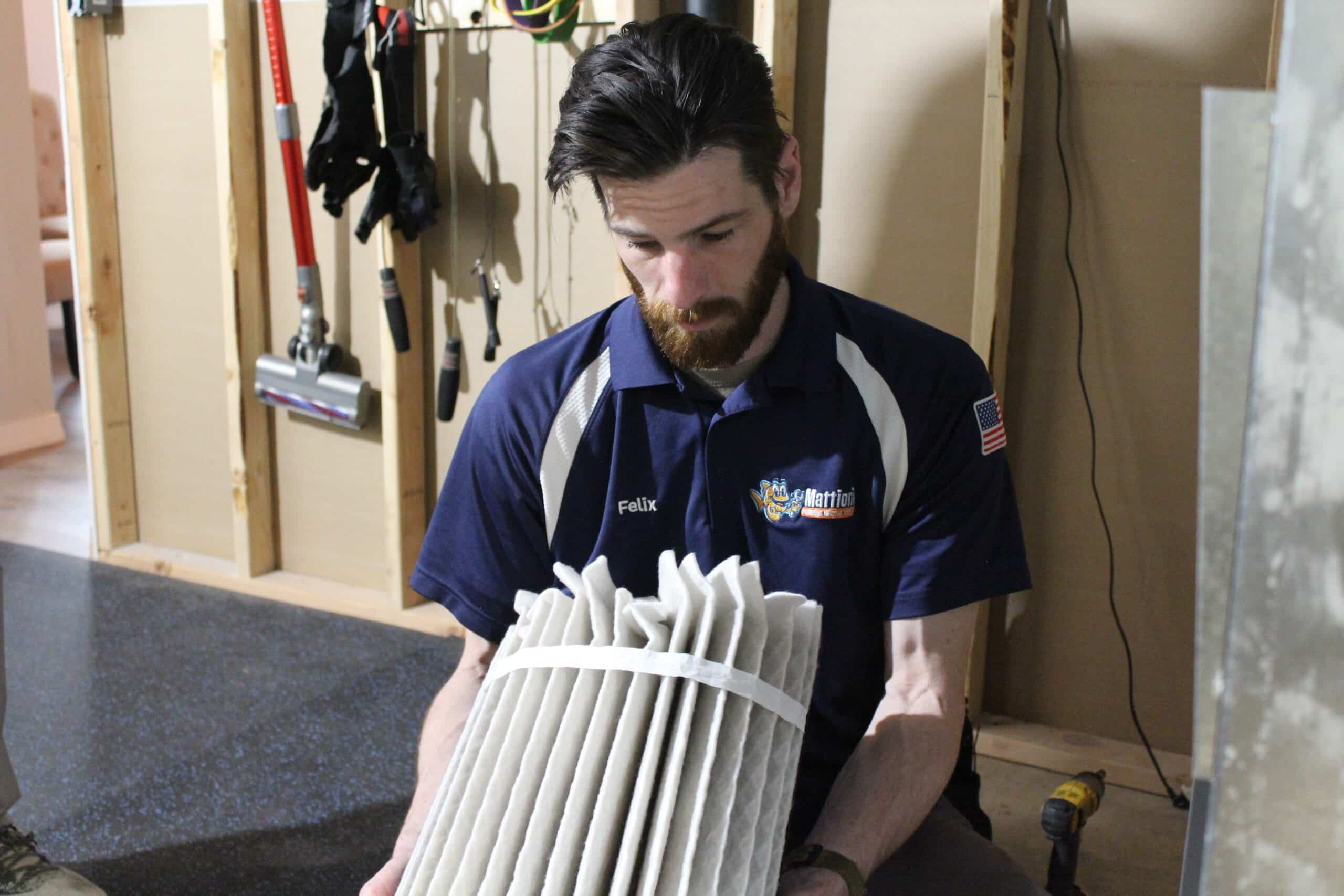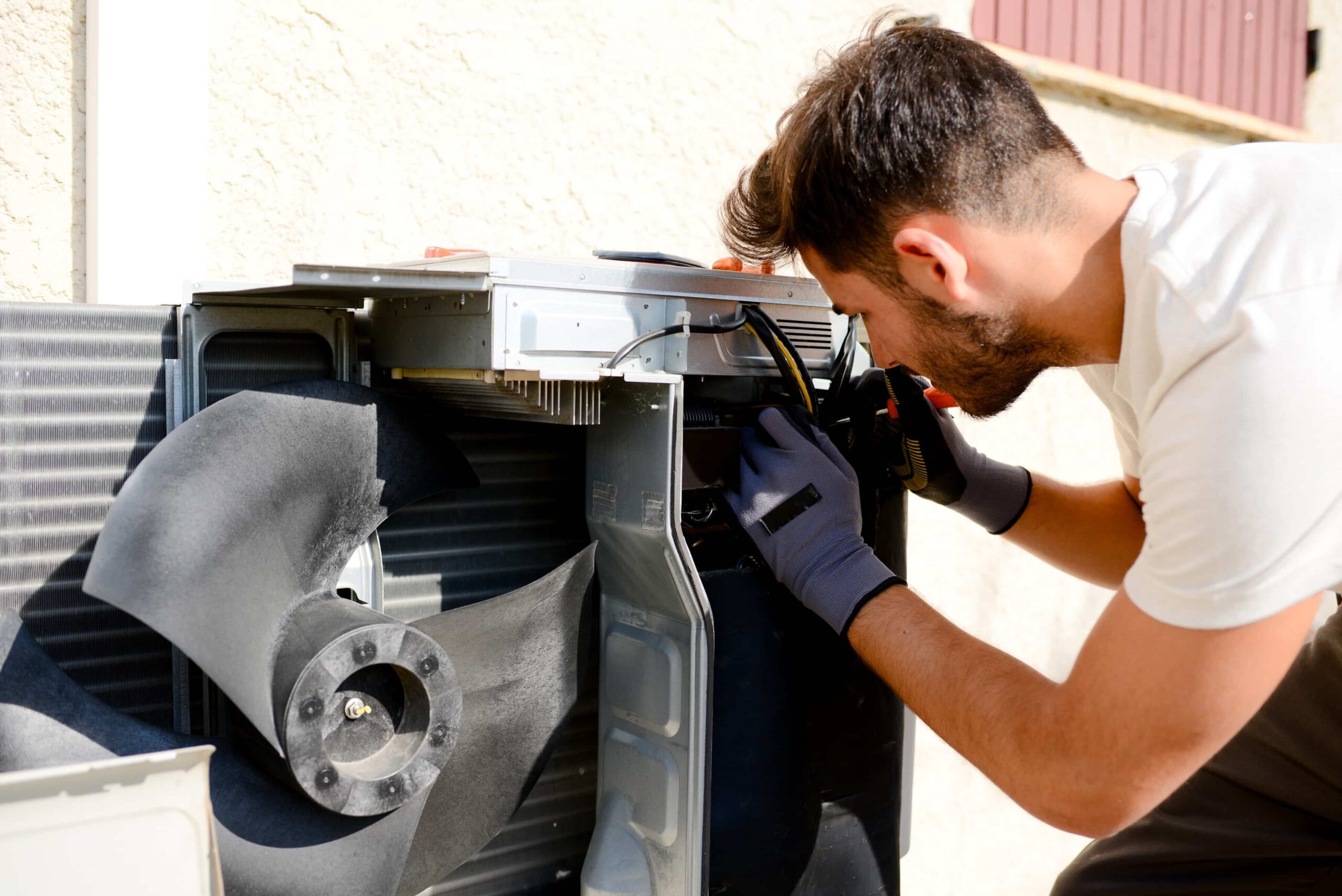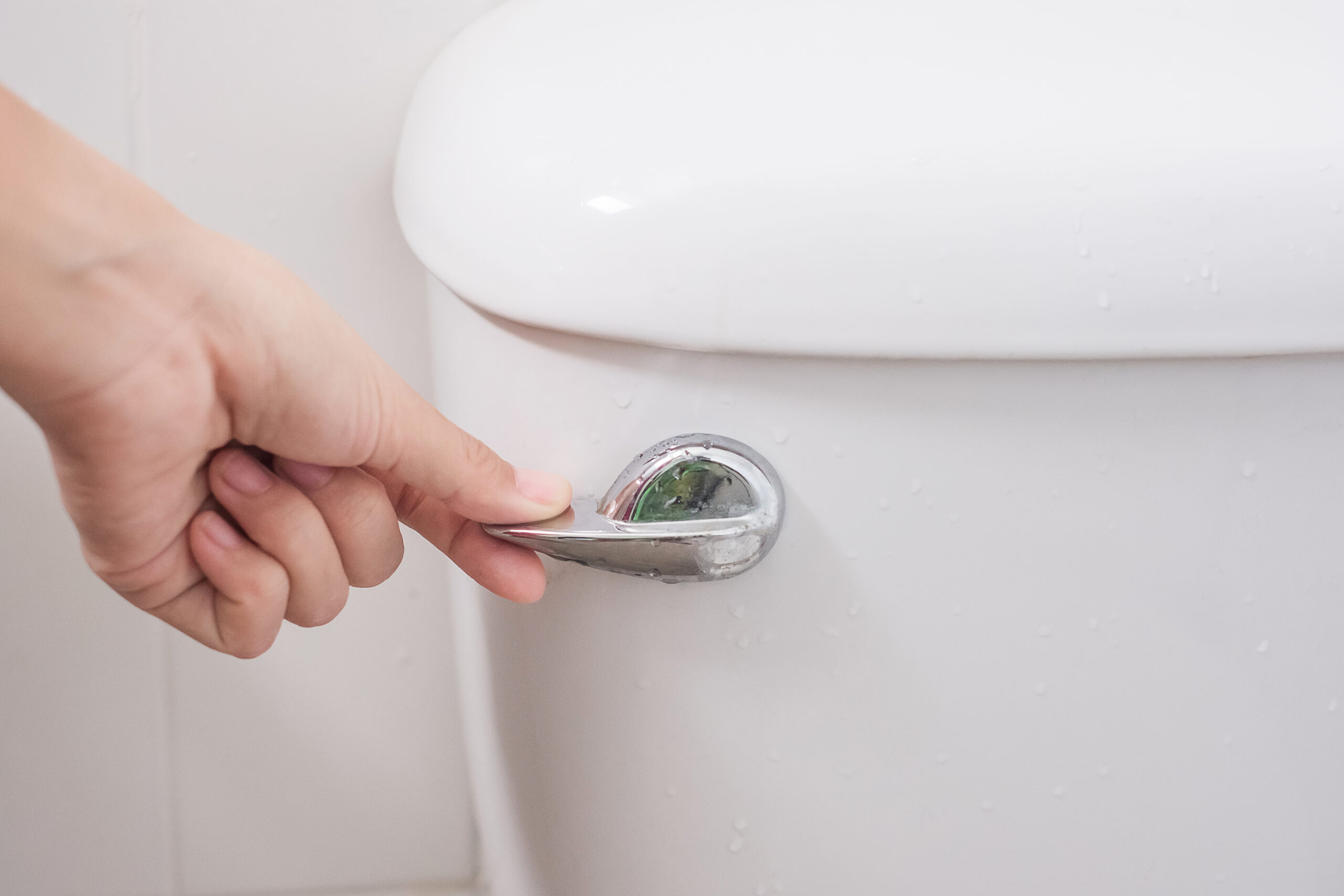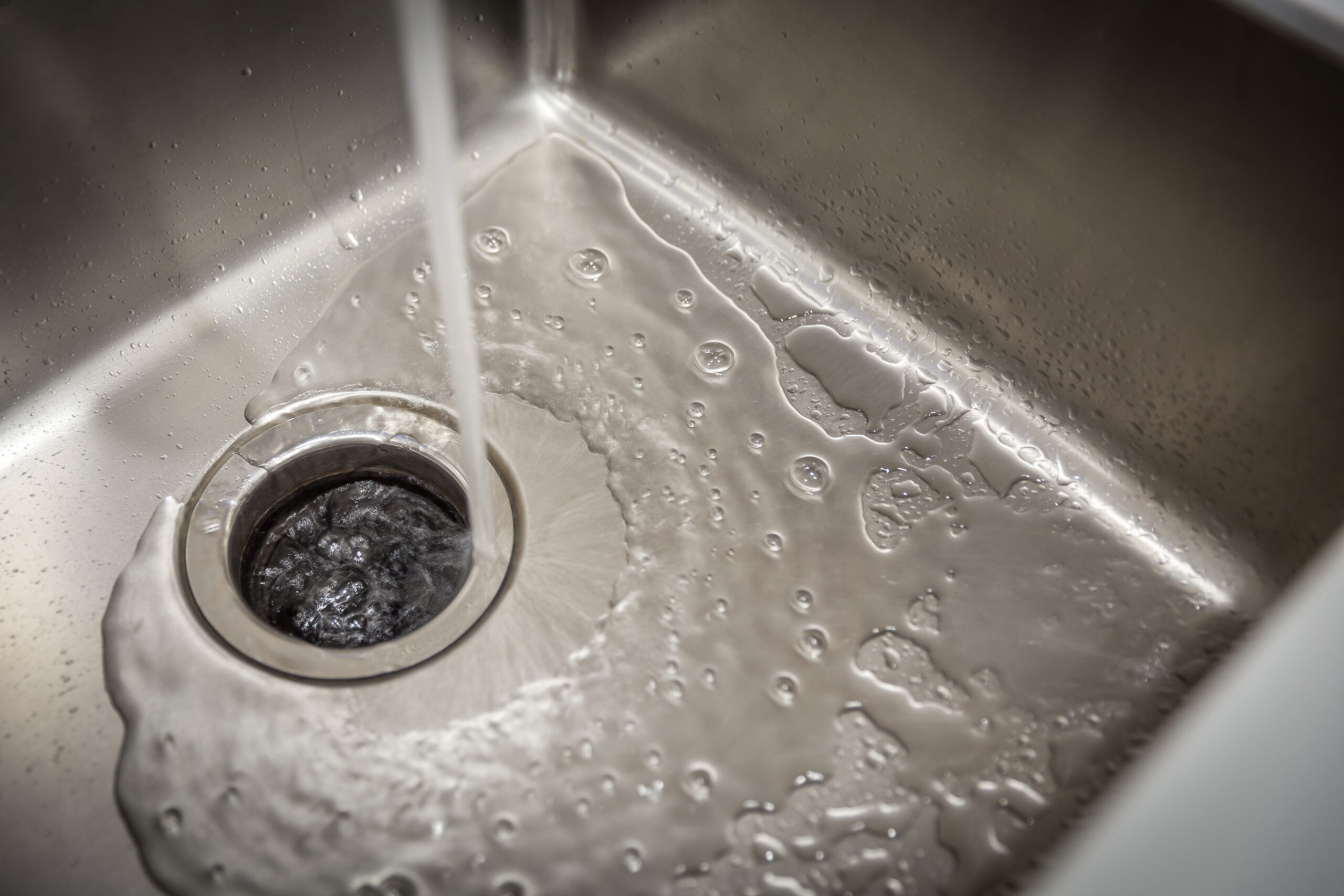|
Getting your Trinity Audio player ready...
|
Last Revised: 1/23/2025
A failing compressor can lead to problems throughout your air conditioning system. Learn about the causes, symptoms, and solutions to a failing AC compressor.
Is your AC unit struggling to keep your home cool during the hottest days of summer? If so, a failing compressor might be to blame.
Within your air conditioner, several individual components work together to deliver cool air, including the compressor. Your compressor drives refrigerant to flow between your indoor and outdoor units, which is the core process of all cooling systems. But what happens when this crucial component starts to fail? Compressor issues are not only inconvenient but can also lead to expensive repairs.
For over 75 years, Mattioni has been servicing air conditioning systems to keep homeowners cool and comfortable in their homes. Our team of HVAC professionals are experts at evaluating the performance of compressors and addressing problems that they run into.
In this article, we’ll explain how compressors work, what causes them to fail, the warning signs of a failing compressor and how to address these issues effectively.
How The Compressor Keeps Your AC Running Smoothly
The compressor in your air conditioner unit has the important role of circulating refrigerant, the chemical that transfers heat, through the system. It does this by transforming it from a low-pressure gas to a high-pressure, high-temperature gas as it approaches the outdoor condenser coil.
This process is essential for the refrigerant to release its heat and cool your home effectively. Without a functioning compressor, the cooling cycle breaks down, leaving your home uncomfortably warm.
AC compressor failure can lead to reduced efficiency, higher energy bills, and an inability to maintain desired temperatures. Therefore, keeping your compressor in good working order is crucial for the overall health of your air conditioning system.

Common Causes of Compressor Failure
Lack of Maintenance Can Lead to Growing Problems
Regular maintenance is the key to a healthy HVAC system. Neglecting routine checks and cleanings can lead to compressor issues. Dirt and debris can accumulate, causing the compressor to overheat and work harder than necessary. Over time, this strain can lead to failure.
A yearly AC tune-up is a surefire way to keep your compressor, and the rest of your system, running at peak performance.
Electrical Issues Will Cause Damage
Electrical problems are another common cause of compressor failure. Faulty wiring, power surges, and electrical malfunctions can damage the compressor.
Installing a surge protector will ensure that your unit’s electrical components, including its capacitor and contactors, stay protected from accidents.
Refrigerant Irregularities: Low Pressure, Overheating and Contamination
The amount of refrigerant in your AC system must be just right as overcharging or undercharging refrigerant can lead to compressor problems. Leaks in the system reduce refrigerant levels, causing the compressor to work harder and eventually fail.
Ensuring that pressure levels are correct within your refrigerant linesets and coils will prevent this particular cause of compressor issues.
Compressors can also overheat for several reasons, including dirty coils and lack of ventilation. When the compressor overheats, it can cause the motor to burn out, or deteriorate the wiring’s insulation, leading to failure. Regular cleaning and proper installation can prevent this issue.
Additionally, contaminants like dirt, debris, and moisture can enter the system and cause the compressor to fail. These contaminants can block the refrigerant lines, reducing efficiency and increasing wear on the compressor.
Wear and Tear that Comes with Age
Like any mechanical component, compressors have a lifespan. Over time, wear and tear can take its toll. Regular maintenance can extend the life of your compressor, but eventually, it will need to be replaced.

Signs of a Failing Compressor
Recognizing the signs of a failing compressor early can save you from a complete system breakdown. Here are some telltale signs:
Noisy Operation and Hard Starting
Unusual sounds coming from your air conditioner unit, such as grinding, rattling, or screeching, can indicate compressor issues. These noises often mean that internal components are damaged or worn out.
A compressor that struggles to start or frequently turns on and off (referred to as short cycling) indicates problems. This issue can cause excessive wear on the compressor and other components.
Reduced Cooling Efficiency and Increased Energy Bills
If your AC unit struggles to maintain the desired temperature, it could be a sign that the compressor is failing. Reduced cooling efficiency often results in higher energy bills and discomfort.
A failing compressor works harder to cool your home, leading to increased energy consumption. If you notice a spike in your energy bills, it might be time to check your compressor.
Frequent Tripping of Your Circuit Breaker
If your air conditioner frequently trips the circuit breaker, it could be due to electrical problems related to the compressor. This issue requires immediate attention to prevent further damage.
Diagnosing Compressor Problems
Diagnosing compressor problems requires a professional inspection. HVAC technicians use specialized tools and methods to identify the root cause of the issue. However, there are two quick checks homeowners can perform on their own before calling a professional:
- Check the Thermostat: Ensure your thermostat is set correctly and functioning properly.
- Inspect the Air Filter: A clogged air filter can cause the compressor to overheat. Replace the filter if it’s dirty.
While these checks can help evaluate the severity of the issue, it’s essential to contact a professional for a thorough diagnosis.

Solutions for Compressor Issues
When facing compressor issues, you’ll have to decide whether to repair or replace the compressor.
When to Repair and When to Replace
Common professional repair methods for compressor issues include fixing electrical components, cleaning the system, and replenishing refrigerant levels. You may also want to consider replacing the compressor itself, however it’s crucial to hire qualified HVAC professionals to ensure the repairs are done correctly and safely.
Sometimes, replacing the entire AC unit may be more cost-effective, especially if it’s an older system. Factors influencing this decision include:
- Age of the Unit: If your AC unit is over 10-15 years old, replacing it can be more cost-effective in the long run.
- Warranty Status: Many compressors come with a 5 to 10-year warranty, which can cover repair or replacement costs.
- Frequent Repairs: If you’re frequently repairing your AC unit, it might be time for a new system.
- Energy Efficiency: Newer units are more energy-efficient, leading to lower energy bills and improved performance.
- Refrigerant Type: Older units may use R-22 refrigerant, which is being phased out. Upgrading to a newer refrigerant is advisable.
How Best to Prevent Compressor Issues
Preventing compressor failure involves regular maintenance and care. Here are some tips:
- Schedule Annual Maintenance: Have your HVAC system inspected and serviced annually by a professional.
- Keep the Area Clean: Ensure the area around your outdoor unit is free from debris and vegetation.
- Replace Filters Regularly: Change your air filters every 1-3 months to maintain airflow and efficiency.
- Monitor Refrigerant Levels: Have a professional check and adjust refrigerant levels as needed.
- Install a Surge Protector: Limit your HVAC system’s exposure to electrical accidents.

What does a Failing Compressor Mean for Me?
Your AC unit’s compressor is at the heart of your cooling system and keeping it in good working condition is crucial for your comfort and avoiding high energy bills.
Understanding the causes and signs of compressor failure can help you address issues promptly, whether through repairs or replacement.
Regular maintenance and professional inspections are key to extending the life of your compressor and ensuring your AC unit runs efficiently. By staying proactive, you can avoid the discomfort and expense of a failing compressor and enjoy a cool, comfortable home all summer long.
Don’t wait for your compressor to fail – schedule a maintenance appointment with a qualified HVAC professional to keep your system running smoothly.
For more tips on HVAC maintenance and troubleshooting, explore our Learning Center, reach out to our team at (610) 400-8510 or schedule an appointment online.




